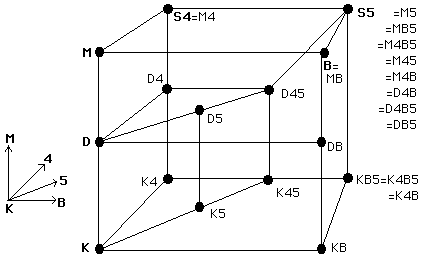Argument from paraphrase:
1) Things might have been otherwise than they are
2) (1) can be paraphrased as “there are ways things might have been”
3) (1)&(2)
4) If (3) then (5)
5) There are ways things might have been
6) (5) is an existential claim
7) (5)&(6)
8) If (7) then (9)
9) There exist entities called “ways things might have been”
Lewis says these are the same as possible worlds.
Argument from utility:
10) When faced with competing theories, all else being equal, the one with greatest net utility is probably true.
11) GMR has more net utility than AR
12) (10)&(11)
13) If (12) then (14)
14) If (MR) then (GR)
These two arguments can be seen as working in conjunction. The paraphrase argument argues for MR, and utility takes one from MR to GR. As far as I can tell, premise 6 begs the question against anti-realists. They would attempt to give a reading of (5) without any existential commitments. One could say it’s not clear from ordinary language use that (5) is an existential claim because it could be paraphrased into (1).
As far as the argument from utility goes, (10) is un-argued for. A fictionalist, for example, would try to suck any utility out of a theory without committing to its truth in any way. As well, it’s not unreasonable to use theories known to be false if that yields certain pragmatic purposes. It would seem utility is not quite to related to truth as Lewis would have it.
Arguments against truthmakers:
1) de dicto impossibility claims have no clear truth-makers in GR
2) if (1) then (3)
3) GR does not provide truth makers for every claim
1) If (p is true iff a exists) then (a is a truth-maker for p)
2) If something exists at some world it necessarily exists at some world
3) If (2) then (4)
4) True unrestricted possibility claims are necessarily true
5) (2)&(4)
6) If (5) then (7)
7) For any object a and unrestricted possibility claim p, p is true iff a exists
8) For any object a and unrestricted possibility claim p, a is a truth-maker for p
9) If (8) then (10)
10) GR does not provide adequate truth makers for unrestricted possibility claims
If I understand the concept of truthmakers right, I’d deny premise (1) in this argument. It’s coherent to think that even if p is true iff a exists, a is not a truth-maker for p. Some other quality must be present, the being true in virtue of the existence of a. I don’t think it’s such a mysterious concept either. For instance “it’s possible there are unicorns” could be represented thusly:
ExEy(Ux&Wy&Pxy)
It’s clear that this is necessary under GR and is thus true whenever any other necessary proposition is true. However it’s true in virtue of those objects that satisfy that description. To pull this off Lewis may have to grant that propositions are more than just sets of possible worlds. However, he does grant that propositions can be defined in more fine-grained terms if need be.
Argument for special treatment:
1) Modal operators allow quantifiers to range over worlds that were otherwise restricted; they do this in precise ways.
2) If (1) then (3)
3) Modal operators are redundant if there is no implicit restriction on the appropriate quantifier
4) If (3) then (5)
5) Certain modal sentences require different treatment than others
I’d deny premise 1 of this argument. I don’t think this captures all the uses of modal operators in ordinary language. For instance, there should be a difference in meaning between “there is a plurality of worlds” and “there is necessarily a plurality of worlds”. One would express a brute fact while the other should express a necessary one. While Lewis holds that it is in fact necessary that there is a plurality of worlds, his semantics should allow for this distinction.
1) Individuals are part of all possible worlds that would otherwise require a counter-part of that individual(suppose for reductio)
2) Individuals have contingent intrinsic properties
3) If (2) then (4)
4) Some individual a has contingent intrinsic property F
5) (1)&(4)
6) if (5) then (7)
7) at some world w, a is a part of w and ~Fa
8) if (7) then (9)
9) ~Fa
10) If (4) then (11)
11) Fa
12) (9)&(11)
13) Individuals are not directly represented in all possible worlds that would otherwise require a counter-part of that individual
14) If (13) then (16)
15) Every individual that is part of any world is part of exactly one world
I’m not exactly sure what was meant by “intrinsic property” (is it something like ‘essential proptery’?). However, this is the best I could formulate the argument. The most assailable premise would probably be (8). If a theory like that of modal parts were accepted, unqualified “~Fa” wouldn’t result from ~Fa being true at a world.
Tuesday, June 5, 2007
Subscribe to:
Post Comments (Atom)

No comments:
Post a Comment